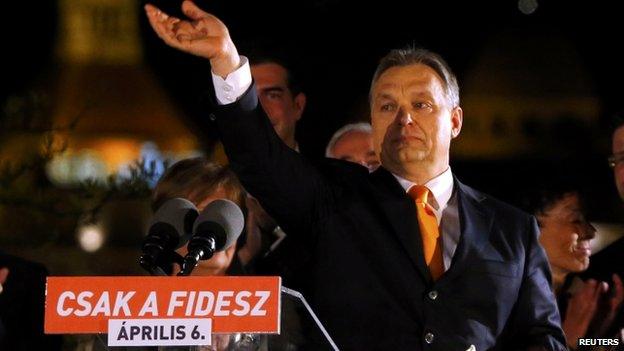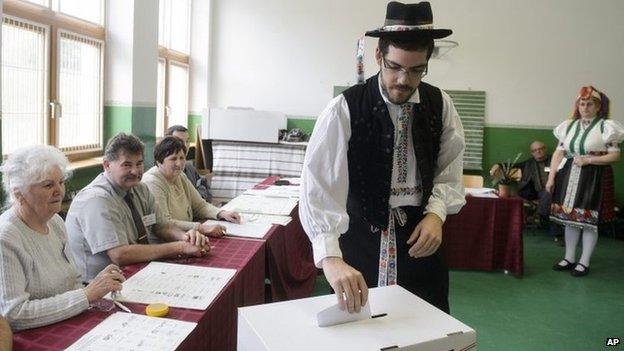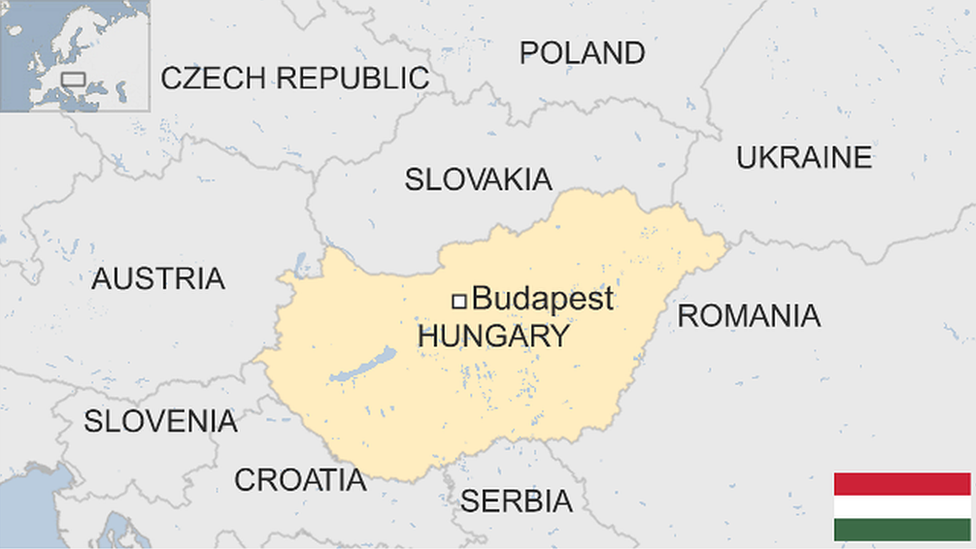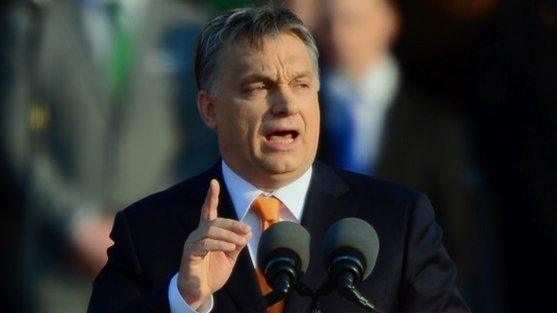Hungary election: PM Viktor Orban declares victory
- Published

Viktor Orban spoke in front of a jubilant crowd in central Budapest
Hungarian Prime Minister Viktor Orban has declared victory in Sunday's parliamentary election, winning a second consecutive term.
His centre-right Fidesz has polled 45%, with most of the votes counted.
A centre-left opposition alliance is trailing with 25%, while the far-right Jobbik party is credited with 21%.
The Hungarian left has never fully recovered from its heavy defeat in the 2010 ballot, in which Mr Orban swept to power with a two-thirds majority.
Sunday's election has been mainly fought over the state of the economy, correspondents say.
'We won'
"No doubt we have won," Mr Orban told supporters gathered in the capital, Budapest, late on Sunday evening.
"This was not just any odd victory. We have scored such a comprehensive victory, the significance of which we cannot yet fully grasp tonight."
He said the election results showed that Hungarians wanted to stay in the European Union, but with a strong national government.
"I'm going to work every day so that Hungary will be a wonderful place," he declared.
Fidesz is predicted to win around 135 of the 199 seats in parliament.

About 5m Hungarian voters cast ballots in the elections, some in traditional dress
It now also seems likely that Jobbik will become the second-largest party in parliament, the BBC's Nick Thorpe reports from Budapest.
Although the Socialist-led opposition is in second place, the five parties making up the alliance plan to form their own factions after the elections, our correspondent says.
Observers say Jobbik's adoption of a softer image has paid dividends, as a recent opinion poll found leader Gabor Vona to be the most popular opposition politician.
Fidesz supporters say Mr Orban's victory is a tribute to his leadership powers. But opposition parties have accused the prime minister throughout their campaign of undermining Hungarian democracy.
They have also accused Mr Orban of curtailing civil liberties and harming free speech.
Fidesz has insisted that reform was needed to complete the work of eradicating the legacy of Communism from the country, and reduce the budget deficit to below the EU's required 3% of gross domestic product.
Mr Orban's populist and Eurosceptic approach has proven popular with many Hungarians.
"The left had eight years to show what they can do, and they showed us all right," he told Hungarian media on Saturday.
"Why on Earth should we believe that the same people and the same parties would not do the same if given another opportunity?"
- Published4 June 2024

- Published4 April 2014
